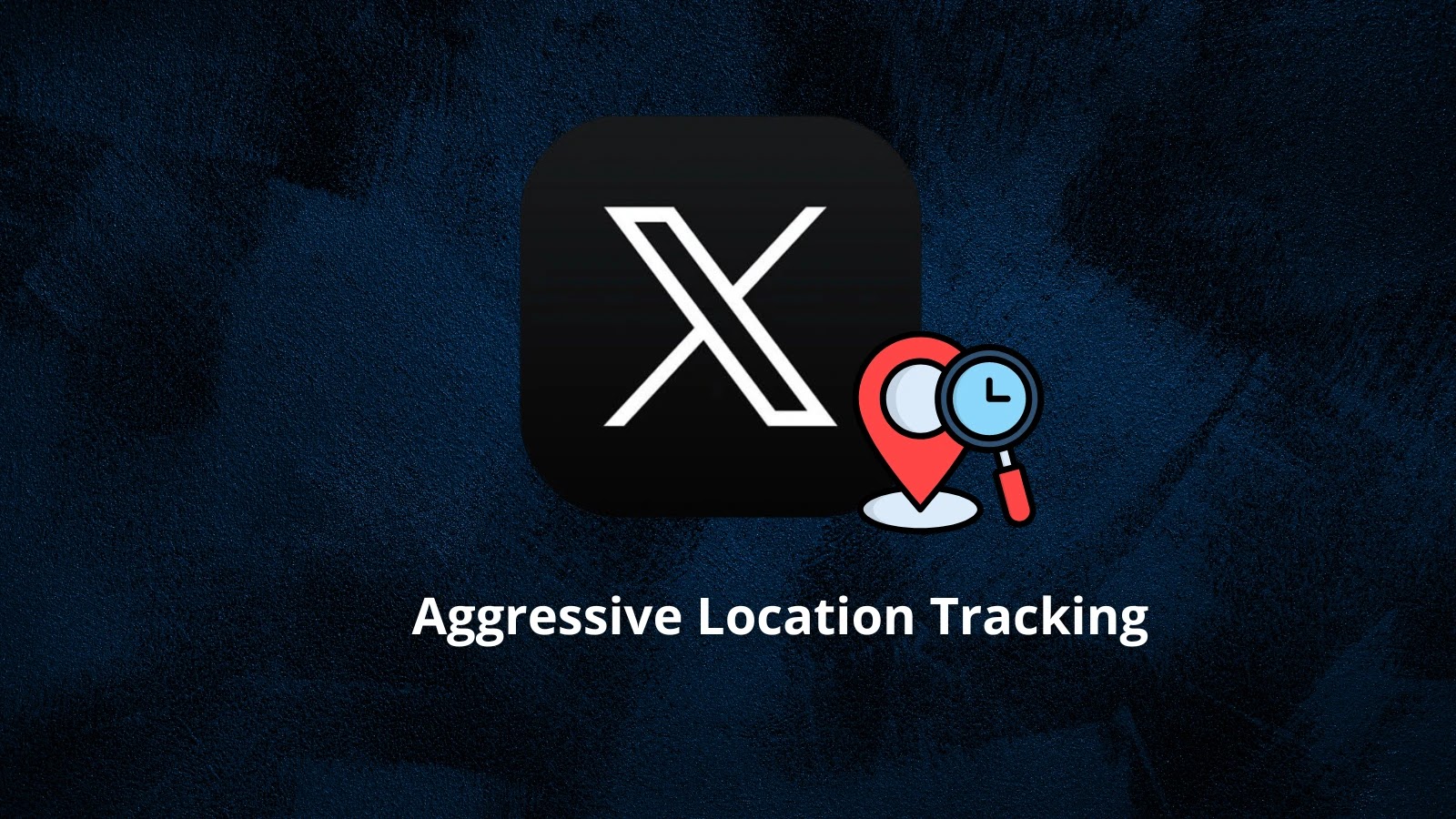
X/Twitter The Most Aggressive Social Media App Collecting Users Location Information
In an era where digital privacy is increasingly scrutinized, a recent comprehensive analysis of the top social media platforms has brought to light a significant concern: X, formerly known as Twitter, stands out as the most aggressive collector of user location information. This finding, detailed in a report by Cybersecurity News, underscores a critical aspect of personal data security often overlooked by users.
The Unprecedented Aggression of X in Location Data Collection
The analysis, which spanned the top 10 social media applications, explicitly identifies X as an unparalleled aggregator of user location data. Unlike many of its counterparts, X reportedly gathers both precise and coarse location information across all categories defined by Apple’s App Store privacy framework. This extensive data harvesting extends beyond typical usage patterns, raising red flags for cybersecurity professionals and privacy advocates alike.
- Precise Location Data: This includes highly accurate geographical coordinates, often obtained through GPS, Wi-Fi, or cellular network triangulation. Such data can pinpoint a user’s exact movements and presence.
- Coarse Location Data: While less precise, this still provides a general area, such as a city, state, or postal code. Even coarse data can be used for profiling or linking activities to a general vicinity.
The implications of such pervasive collection are far-reaching. Location tracking can expose sensitive aspects of an individual’s life, including home and work addresses, daily routines, social connections, and even health-related visits. For IT professionals and security analysts, this level of data aggregation represents a potential vulnerability, not just for the individual but for organizational security if employees are using these platforms on company devices or networks.
Understanding the Privacy Framework and Its Gaps
Apple’s App Store privacy framework attempts to provide transparency to users regarding the data apps collect. However, as demonstrated by X’s practices, merely outlining data categories does not inherently guarantee privacy protection. Users often grant permissions without fully grasping the extent of data collection or its potential misuse.
The core issue lies in the interpretation and implementation of these privacy guidelines by application developers. While an app might declare its data collection practices, the depth and breadth of that collection, particularly with sensitive information like location, can still be alarming. This scenario highlights a broader challenge in balancing user convenience with robust privacy measures within the digital ecosystem.
Why Location Tracking Is a Major Security Concern
The collection of extensive location data by social media applications like X is more than just a privacy invasion; it’s a significant cybersecurity risk. This data can be exploited in numerous ways:
- Doxing and Stalking: Precise location data can be used by malicious actors to pinpoint a user’s physical whereabouts, leading to real-world threats.
- Targeted Phishing and Social Engineering: Knowing a user’s location can enable more convincing and personalized phishing attacks, exploiting their context for higher success rates. For example, a fake notification about a local event or business.
- Corporate Espionage: For professionals, location data could inadvertently reveal attendance at confidential meetings, corporate events, or even details about their travel for business, posing risks for competitive intelligence gathering.
- Aggregated Profiling: Even if individual data points seem benign, when aggregated, they can create highly detailed profiles of individuals or groups, which can be sold to advertisers, political campaigns, or even malicious foreign entities.
The aggregation of such sensitive information by a single platform increases the attack surface. A breach of X’s databases could expose millions of users’ location histories, making them vulnerable to a myriad of attacks.
Remediation Actions: Protecting Your Location Privacy
For individuals and organizations, proactive measures are essential to mitigate the risks associated with aggressive location data collection. While X’s practices are concerning, users have several tools and strategies at their disposal.
- Review App Permissions Regularly: Periodically check the permissions granted to all apps on your mobile devices. For X and similar social media apps, navigate to your device’s privacy settings and review location access. Set location access to “While Using the App” or “Never” if possible.
- Disable Precise Location: Many operating systems now offer the option to disable “Precise Location” for apps, allowing them only coarse location data if necessary.
- Limit Background App Refresh: Prevent apps from collecting data when not actively in use by disabling background app refresh for social media applications.
- Use VPNs and Privacy Tools: While VPNs primarily mask your IP address, they contribute to a broader privacy posture by obscuring your network’s geographical origin. Consider using privacy-focused browsers or browser extensions that block trackers.
- Be Mindful of Geotagged Posts: Avoid sharing posts with embedded location data on social media platforms, especially high-risk ones. Check your camera settings to ensure geotagging is disabled for photos you intend to post publicly.
- Educate Employees: For businesses, it’s crucial to educate employees about the risks of social media apps collecting location data, especially when using company-issued devices. Implement policies regarding location services on work devices.
Tools for Privacy Protection and Security Assessment
While no tool can entirely prevent an application from attempting to collect data, several can help users monitor and manage their digital footprint, contributing to better privacy and security hygiene.
| Tool Name | Purpose | Link |
|---|---|---|
| My Data Manager (MDM) | Monitors data usage by apps, helping identify data-hungry applications. | https://www.mydatamanagerapp.com/ |
| ExpressVPN / NordVPN / Proton VPN | Encrypts internet traffic and masks IP address, enhancing online anonymity. | https://www.expressvpn.com/ https://nordvpn.com/ https://protonvpn.com/ |
| Privacy Badger | Browser extension that blocks invisible trackers. | https://privacybadger.org/ |
| App Permission Manager (Android/iOS Built-in) | Manages and revokes app permissions, including location access. | (Built into OS settings) |
| ExifTool | Reads, writes, and edits metadata in images (useful for removing geotags). | https://exiftool.org/ |
Conclusion
The revelation that X is the most aggressive social media app in collecting user location information serves as a stark reminder of the continuous battle for digital privacy. For IT professionals, security analysts, and every internet user, understanding the extent of this data collection and implementing robust protective measures is no longer optional but imperative. Vigilance, informed decision-making regarding app permissions, and the strategic use of privacy tools are key to safeguarding personal and organizational data in an increasingly intrusive digital landscape.





